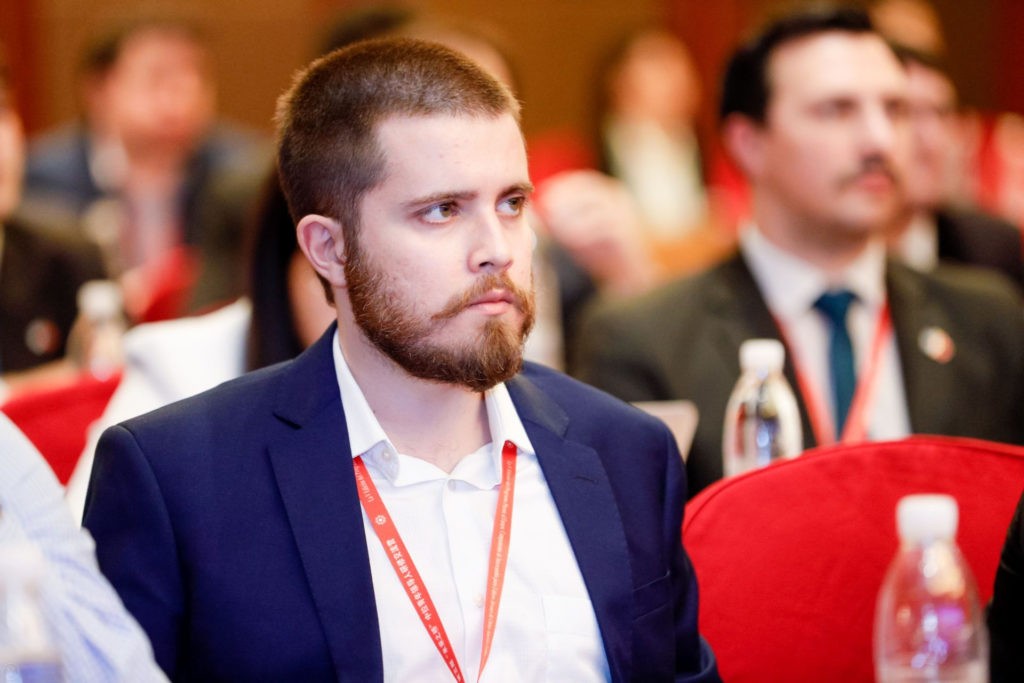In an interview with PLATAFORMA, the Director of Analysis and Research at the Brazil-China Business Council, Tulio Cariello, highlights what kind of Brazilian companies can win in Greater Bahia. At the same time, it predicts an increase in the use of the renminbi in transactions between the two countries.
President Lula began his mandate with an official visit to China. What importance do you place on this visit, with regard to the resumption of normal diplomatic relations between the two countries?
Tulio Cariello – I believe that the main result of President Luiz Inácio Lula da Silva’s visit to China was in the political area. After four years of relative distance from bilateral relations during the Bolsonaro government, Lula’s trip, which took with him several State authorities, such as ministers and parliamentarians, was an important symbol of the rapprochement between the two countries, which included Brasília’s intention to deepen the strategic partnership established with Beijing nearly three decades ago.
This rapprochement is of paramount importance for Brazil, since China is an unavoidable topic in national foreign policy, being the main destination for Brazilian exports since 2009 and an important foreign investor, with around US$70 billion invested in the country. country in the last 15 years.
In addition, Brazil and China are the two largest developing nations in the world, are partners in important multilateral forums, such as the BRICS, and have almost half a century of stable diplomatic relations, without major controversies and with a sophisticated institutional apparatus, which includes mechanisms of permanent dialogue with few parallels in Brazil’s relations with other countries, as is the case of the Sino-Brazilian Commission of High Level of Concertation and Cooperation.
During this visit, the two countries signed 15 agreements that encourage cooperation in different areas, such as trade and industry, communication, innovation, research and technology. What agreements would you like to highlight from this series?
T. C. – There were agreements and memoranda of understanding in areas such as trade facilitation, environment, research and development, agriculture, social development and the fight against hunger and poverty in rural areas, which demonstrates the great diversity of themes present in the bilateral agenda.
Among them, I would highlight agreements on space cooperation and digital economy, very promising areas and with great synergy between the two countries. I would also mention the joint declaration on combating climate change, which shows the commitment of both countries to sustainability and environmental preservation.
In this area, there are many opportunities for bilateral exchanges, given Brazil’s historical role in global discussions on climate change and recent advances in low-carbon agriculture and livestock, combined with China’s great technological leaps in sectors such as clean energy — mainly solar and wind —, electric vehicles, green industries, smart cities, connectivity in the countryside, etc.
What areas would CEBC like to see more explored in the relationship between the two countries?
T. C. – Recently, the Brazil-China Business Council published the document entitled “Sustainability and Technology as Bases for Brazil-China Cooperation”. In this sense, we believe that the two themes open up new avenues of cooperation with China and should be at the center of the Brazilian strategy for the Asian country.
Both are connected with the agenda of the 21st Century and have the potential to sophisticate the Brazilian productive structure and align the country’s priorities, in particular agribusiness, with the fight against global warming.
What potential do you see in the Greater Bay Area for Brazilian companies and entrepreneurs? What role do you think Macau and Forum Macau can play in the business link between Brazil and China?
T. C. – The Greater Bay Area is an urban region of great economic dynamism, with advanced transport and communications infrastructure and a thriving consumer market, which naturally attracts the interest of companies from all over the world.
I believe there are opportunities for Brazilian entrepreneurs in niches where we are already competitive, such as fashion and clothing, cosmetics and food products with higher added value. Macau, in particular, can play an important role in the dialogue between people from both countries, since there is a growing interest of young Chinese people in Lusophony. In the cultural area, this is very positive in the sense of expanding the scope of cinematographic and musical productions in Brazil, with the region being able to be a center that radiates Brazilianness in China.
The two countries have recently taken the first steps to establish bilateral trade in local currencies, excluding the dollar. Do you also see this as an important step for Brazil-China bilateral trade?
T. C. – Trade in local currencies is not a new topic in the debate between the two countries. The advances in the discussions for the establishment of agreements in this area may bring specific advantages to companies in both countries, such as the reduction of transaction costs. Even so, in the short term, there are no prospects for the widespread replacement of the dollar in bilateral trade, as the US currency will continue to dominate international trade.
On the other hand, thinking about the long term, China has established itself as the main trading nation in the world, so it is natural that the renminbi is gaining more and more weight in the foreign currency reserves of many countries.
I believe that agreements to replace the dollar in Brazil-China transactions will not have great immediate effects, but they are important in “preparing the ground” for a future that is heading towards global trade increasingly dependent on China.



